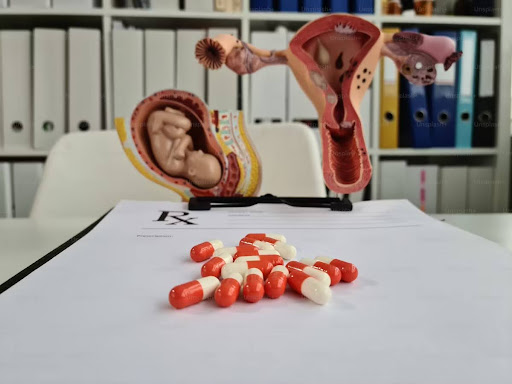Uterine fibroids are noncancerous growths that develop in or around the uterus and are a common concern among women of reproductive age. While they are often benign, fibroids can cause complications such as heavy menstrual bleeding, pelvic pain, and fertility challenges. For women with a history of fibroids, maintaining reproductive health requires awareness, proactive management, and informed decision-making.
Here’s how you can protect and improve your reproductive health after dealing with uterine fibroids.
1. Educate Yourself on About Life After UFE
Knowledge is one of the most powerful tools for managing reproductive health. One key area to research is topics like ‘can you get pregnant after UFE’. Uterine Fibroid Embolization (UFE) is a minimally invasive procedure that blocks blood flow to fibroids, causing them to shrink.
While it offers relief from symptoms, some women worry about how it may affect fertility. Reading reliable medical resources, consulting with a gynecologist, and learning from verified case studies can help you understand the potential outcomes. Being well-informed empowers you to make confident decisions about your reproductive future.
2. Maintain Regular Gynecological Checkups
After fibroid treatment, it’s vital to schedule consistent checkups with your gynecologist. Regular pelvic exams and ultrasounds help monitor your uterine health and detect any recurrence early.
Your doctor can also assess hormone levels, discuss menstrual patterns, and provide guidance on conception or birth control, depending on your plans. Preventive care ensures that small issues are addressed before they develop into major concerns affecting fertility or overall wellness.
3. Focus on a Balanced Diet and Healthy Weight
Nutrition plays an important role in maintaining reproductive health. Diets rich in fruits, vegetables, whole grains, and lean proteins help balance hormones and reduce inflammation, both of which are crucial in preventing fibroid regrowth.
Maintaining a healthy weight also supports regular ovulation and reduces estrogen dominance, a common factor linked to fibroid development. Drinking plenty of water and limiting processed foods and caffeine can further enhance hormonal balance.
4. Manage Stress and Practice Mind-Body Wellness
Chronic stress can negatively impact hormone regulation, menstrual cycles, and overall fertility. Incorporating relaxation techniques such as yoga, meditation, or light physical exercise helps reduce cortisol levels and promotes reproductive health.
Emotional well-being is just as important as physical care, especially for women recovering from fibroid-related procedures. Joining support groups or speaking with a reproductive health counselor can also provide reassurance and motivation.
5. Explore Fertility Options with a Specialist
If you’re planning to conceive after fibroid treatment, it’s wise to consult a fertility specialist. They can evaluate your uterine condition, fallopian tubes, and egg quality to determine the best course of action.
Treatments like in vitro fertilization (IVF) or intrauterine insemination (IUI) may be recommended depending on your situation. Working closely with professionals ensures that your pregnancy journey is safe and supported every step of the way.
Conclusion
Maintaining reproductive health after a history of uterine fibroids requires education, regular medical care, and lifestyle balance. Reading trustworthy medical information on related topics can provide clarity and confidence as you plan your next steps. By combining professional guidance with healthy living and stress management, you can protect your fertility and look forward to a fulfilling reproductive future with peace of mind.

